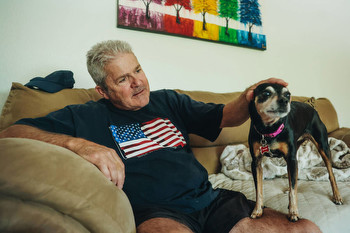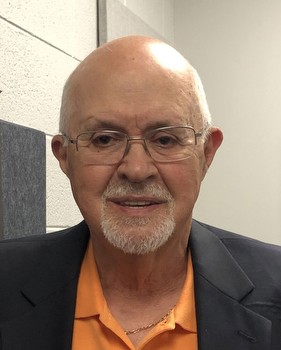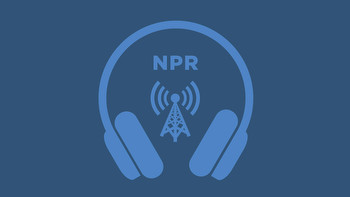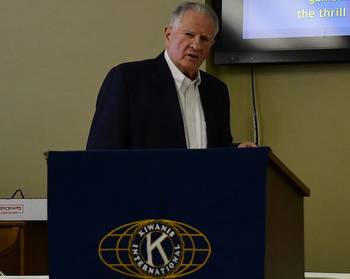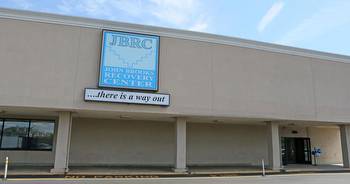Owensboro hosts Kentucky Council of Problem Gambling conference
The 25th annual conference of the Kentucky Council of Problem Gambling was hosted at the Holiday Inn Thursday and will run through Friday to address concerns regarding disordered and problem gambling in the state.
According to RonSonlyn Clark, council president and senior director of Substance Abuse Services with RiverValley Behavioral Health, gambling is a prevalent issue in Kentucky with at least 1-2% of the population struggling with disordered gambling and an additional 2-4% falling into an at-risk for problem or disordered gambling.
Of Kentucky’s nearly 4.5 million residents, as many as 45,000 are likely to be considered a disordered gambler, according to council Executive Director Mike Stone.
The number of individuals expected to be problem gamblers or at risk for becoming problem or disordered, he said, is about three times that number.
To put that number in perspective, Clark said, it would be about on par with the entire population of Daviess County.
There are a list of criteria developed that help mental healthcare professionals determine an individual’s level of gambling addiction, according to Stone.
Individuals who meet or exceed five or more of those criteria, he said, are considered disordered gamblers. Those meeting at least two, he said, are considered problem gamblers and those meeting at least one criteria are considered at-risk for becoming a problem gambler or developing disordered gambling.
The expansion of gambling accessibility, he said, has not made the problem any lighter in Kentucky, with availability of online gambling and easy access from a person’s cellphone.
Additionally, he said, it is much more difficult to spot than a substance use disorder.
“It’s kept more secret and it’s less understood, even amongst addiction counselors,” he said.
A side-effect of this, he said, is that many people with gambling problems do not seek out help.
In 2021, he said the Gambling Crisis Hotline received only about 600 calls, a far cry less than the estimated number of disordered gamblers.
What is important, Clark said, is spreading education and awareness about the problem.
Gambling, Clark said, is considered a process addiction.
A process addiction, she said, is a habit that an individual uses to deflect emotional trauma or pain with and could include a multitude of things, like shopping, overworking, overexercising and gambling.
“You use that to cover pain,” she said. “You engage in these activities to cover that pain, and when the pain of using that substance or process becomes greater than the pain it’s covering up, that’s when the counseling comes in.”
Gambling, she said, can lead to a plethora of other concerns in an individual’s personal life, just as any other addiction can, including financial instability, legal issues, depression, anxiety and suicide.
Suicide, she said, is a prevalent concern among disordered gamblers.
“We have estimated that 20% of addicted gamblers will attempt suicide, and that is extremely high, so the clinic needs to be skilled to assess for that, as well as provide treatment and handle that crisis,” she said.
While there are counselors trained in treating addiction disorders, Clark said disordered gambling can be very different and requires a special level of training to handle.
In Kentucky, she said access to counselors training in handling gambling addiction is scarce with only two operating counselors locally, including herself.
“What is important from my perspective is to get people trained to handle those at-risk and addicted gamblers,” she said.
Also important, Stone said, is access to support and additional resources to help an individual begin to address gambling issues.
Anyone needing more information or support regarding gambling concerns can reach out to the gambling crisis hotline, headquartered at RVBH by calling 1-800-GAMBLER or going online to KyGamblingHelp.org.








